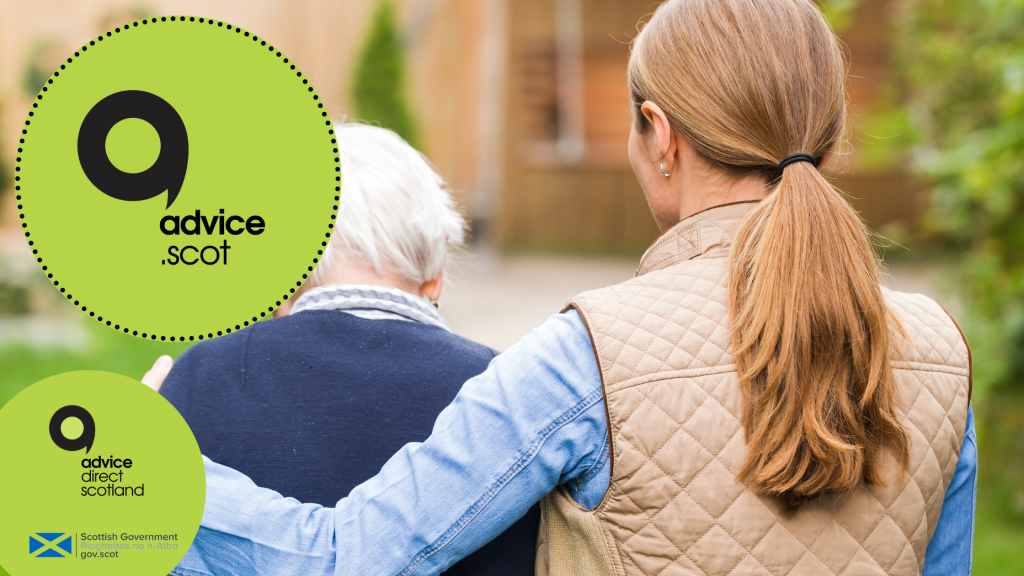
The person you care for must be getting a relevant benefit because of their disability, which in some cases must be paid at a certain rate.
- Personal Independence Payment – daily living component
- Disability Living Allowance – the middle or highest care rate.
- Attendance Allowance
- Constant Attendance Allowance at or above the normal maximum rate with an Industrial Injuries Disablement Benefit
- Constant Attendance Allowance (of £75.50 or more) paid with an Industrial Injuries Disablement Benefit, or basic (full day) rate with a War Disablement Pension.
- Armed Forces Independence Payment
- Child Disability Payment – the middle or highest care rate- Adult Disability Payment – daily living component
Carer’s Allowance does not depend on national insurance contributions and is not means-tested – in other words, it is not based on your personal income or savings – but earnings may affect your entitlement. Carer’s Allowance usually counts in full as income when calculating your entitlement for means-tested benefits. People living in Scotland who are receiving Carer’s Allowance could also get an extra payment known as Carer’s Allowance Supplement. It is a non-means-tested (but you must not earn over £139 per week). It is a taxable benefit which is administered by the Carer’s Allowance Unit (Department for Work and Pensions).
Eligibility
All the following must apply:
- You are 16 or over.
- You spend at least 35 hours a week caring for someone.
- You have been in England, Scotland, or Wales for at least 2 of the last 3 years (this does not apply if you are a refugee or have humanitarian protection status)
- You normally live in England, Scotland, or Wales, or you live abroad as a member of the armed forces (you might still be eligible if you are moving to or already living in an EEA country or Switzerland)
- You are not in full-time education.
- You are not studying for 21 hours a week or more.
- You are not subject to immigration control.
- Your earnings are £132 or less a week after tax, National Insurance, and expenses.
- If you are from the EU, Switzerland, Norway, Iceland, or Liechtenstein, you and your family usually also need settled or pre-settled status under the EU Settlement Scheme to get Carer’s Allowance. The deadline to apply to the scheme was 30 June 2021 for most people, but you might still be able to apply.
If you are in paid work, you might still be able to get Carer’s Allowance, but you must not earn more than £139 in take home pay each week. However, certain expenses can be deducted from this.
Which types of Care I must provide to receive this allowance?
You need to spend at least 35 hours a week caring for someone. This can include:
- Helping with washing and cooking
- Taking the person, you care for to a doctor’s
- Helping with household tasks, like managing bills and shopping
How much carer allowance will I get?
Carer’s Allowance is money that you can spend as you want. Even if you do not receive a payment of Carer’s Allowance due to overlapping benefit rules, entitlement to it allows you to get an extra amount, called ‘Carer’s Premium or Addition’, as part of other benefits, so you should still make a claim. Carer’s Premiums/Additions can be added to or considered for:
- Income Support
- income-based Jobseeker’s Allowance
- Housing Benefit (England, Wales, Scotland)
- Council Tax Support
- Pension Credit
- Universal Credit
If you receive Carer’s Allowance, you also qualify for a Christmas Bonus each year (unless you get one with another benefit). This is usually £10. You do not need to make a claim for the bonus. It is paid automatically. It does not affect any other benefits you might get.
How will I be paid?
Carer’s Allowance will be paid directly into your bank or building society account or through the Payment Exception Service if you are unable to open or manage one of these or a similar account. You can choose to be paid either weekly in advance or every 4 or 13 weeks in arrears.
A Carer’s Allowance claim will begin from the date the claim form is received by the benefit office or submitted online. A Carer’s Allowance claim can be backdated for up to three months before this date if you would have been entitled to it earlier. It does not matter why your claim is late. Request this when claiming.
Can I get My Claim Backdated?
You can backdate your claim by up to three months.
What Should I do If I Disagree with Decision Made?
You can challenge a decision about your claim. If you disagree with the decision made on your Carer’s Allowance claim, for example due to incorrect information being used, you can ask for it to be looked at again known as a ‘mandatory reconsideration’. If you still disagree with the further decision, you can then appeal to an independent tribunal. The time limits are strict, you will usually be given one month to dispute a decision, so it is important to seek advice and act quickly.
What is Young Carer Grant?
Young Carer Grant is a Scottish Government benefit available to young people aged between 16 and 18 who are caring for someone who receives a disability benefit for an average of 16 hours a week.
The financial support is available annually to those who are eligible and can be spent on anything the young person chooses. The 2023 payment is £359.65. The payment is available to those at school, in further education, employed or unemployed. They can apply once a year as long as they remain eligible.
What is NEW Carer Support System?
Carer Support Payment will replace Carer’s Allowance in Scotland, with initial rollout starting in November 2023. The payment of £76.75 per week will remain the same, however the biggest change is for unpaid carers in full-time education. Currently, if you are in full-time education, you cannot receive Carer’s Allowance. However, from launch in Spring 2024, it is planned to extend entitlement for Carer Support Payment to unpaid carers over 20 years old in full-time education at any level and to those aged 16 to 19 in full-time advanced further and higher education (studying at HNC level and above).



